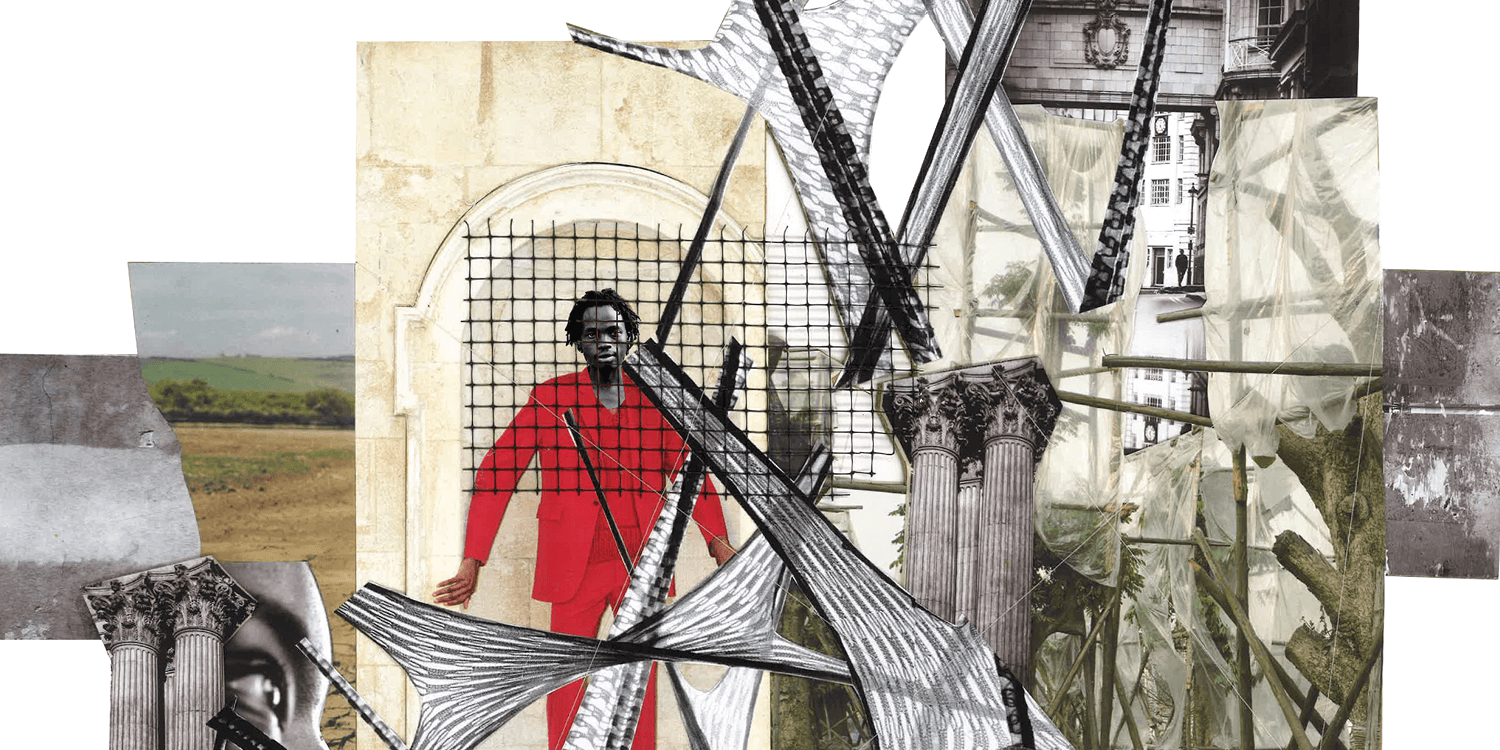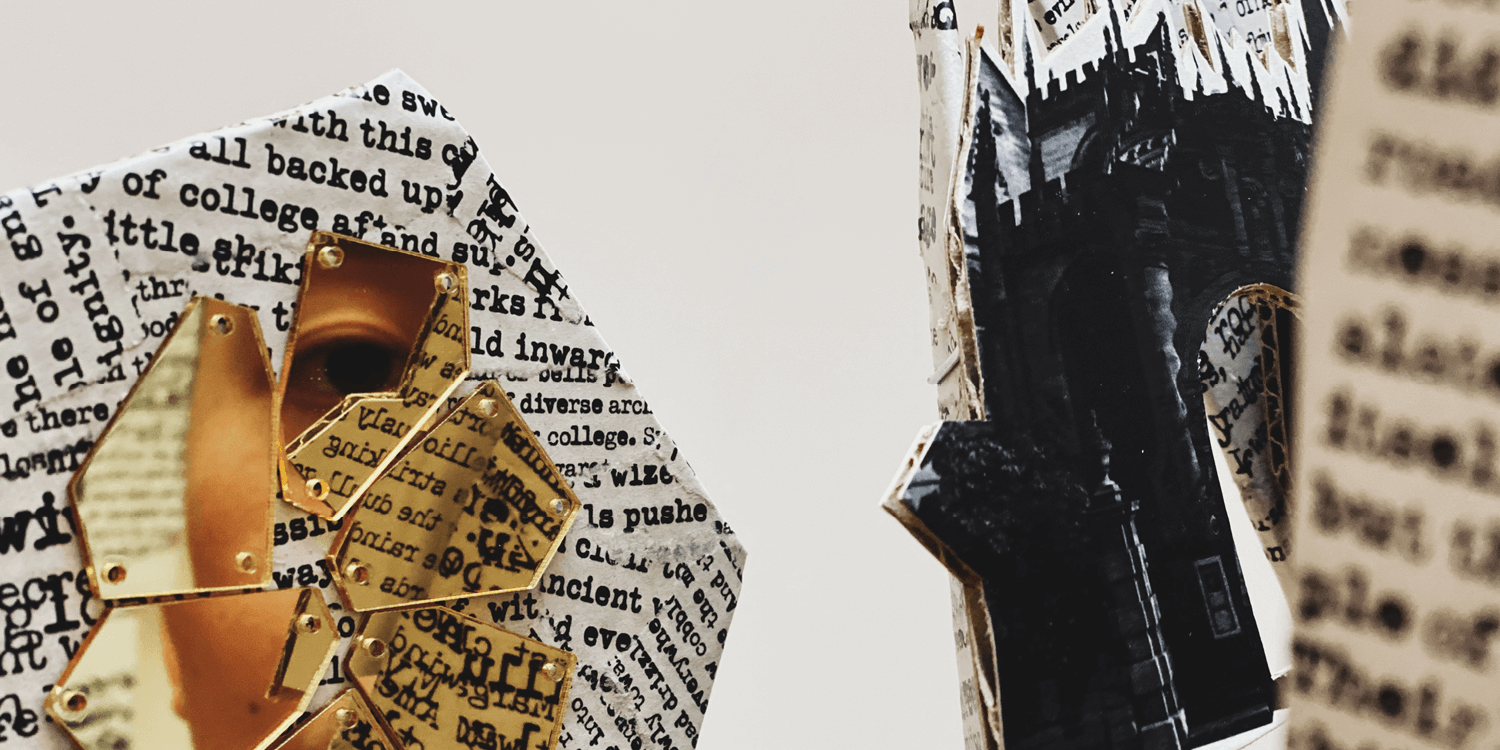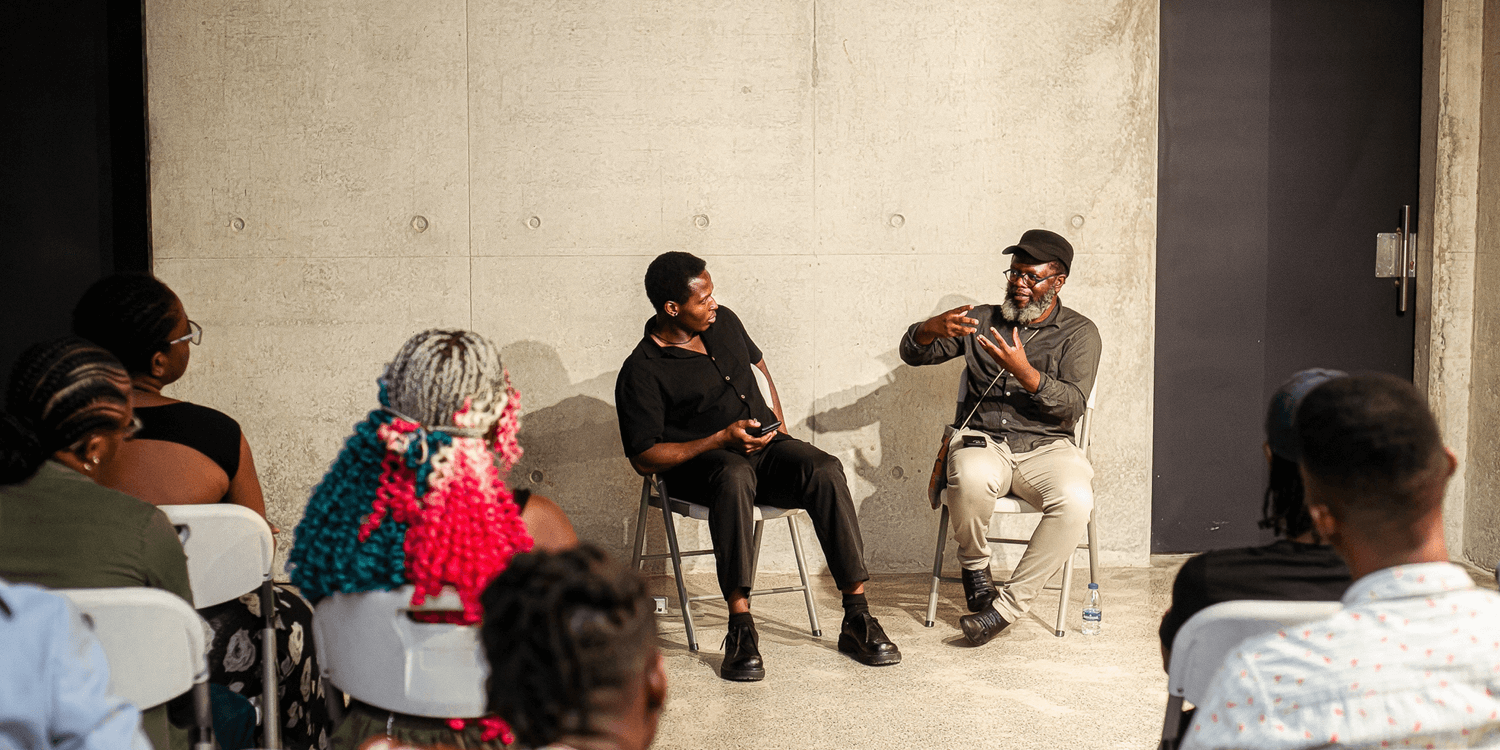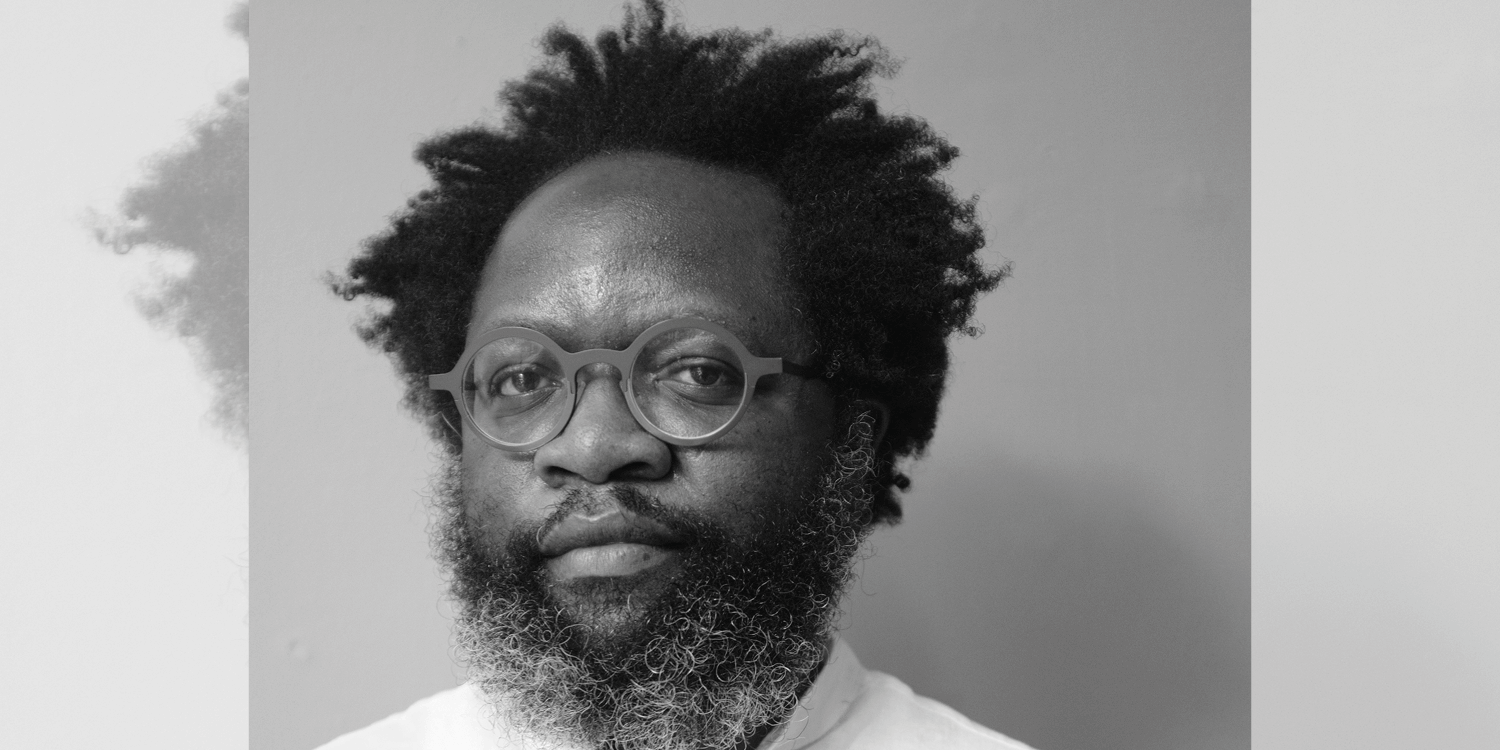Dr Tinashe Mushakavanhu, a Zimbabwean writer, scholar, and curator, joins G.A.S. Lagos for a six-week residency as the 2025 curatorial recipient of the G.A.S. Fellowship Award supported by Deutsche Bank. His expansive practice spans printmaking, installation, curating, research, and literature, with a strong focus on the intersections of African literary histories, archives, and visual culture. At the core of his approach is an interest in how fiction can function as a tool for critical inquiry, activating narratives, reworking found materials, and challenging dominant cultural and institutional frameworks.
During his residency, Dr Tinashe will develop The Faculty of Arts, a project that explores fiction as a mode of archival inquiry through the imagined setting of Dambudzo Marechera’s The Black Insider. As part of this, he hopes to produce Precision, a one-off publication combining archival material, speculative writing, and visual experimentation. He also intends to engage deeply with Lagos’ artistic and literary communities, building relationships that inform both the conceptual and practical dimensions of his work. While arriving without a fixed itinerary, he is keen to visit museums, galleries, libraries, bookshops, and print studios, and to connect with artists whose practices intersect with text and image.
 Systems and Structures by Elena Crawford featured in Disruptive Dialogies (2023). Image courtesy of the artist.
Systems and Structures by Elena Crawford featured in Disruptive Dialogies (2023). Image courtesy of the artist.
What is the current focus of your creative practice?
My current practice explores the intersections of literature, archives, and visual culture. I’m particularly interested in how narratives, both real and imagined, can be activated through curatorial gestures and experimental publishing. Drawing from African literary histories, I use fiction as a tool for critical inquiry, often reworking found material to question dominant cultural and institutional narratives. At the moment, I’m developing projects that treat the archive not just as a repository of the past, but as a space for speculation, performance, and new knowledge.
What drew you to apply for this residency and how do you think it will inform your wider practice?
As a lifelong student of African literature, Lagos has always been more than a point of reference, it is a living archive, a dynamic city where the past, present, and future of African literary and artistic production converge. Its publishing histories, intellectual networks, and cultural infrastructures continue to shape the contours of the continent’s creative imagination. I was particularly drawn to the residency at G.A.S. Foundation because of its interdisciplinary ethos and the visionary projects led by Yinka Shonibare CBE RA, especially his engagements with books and libraries as sculptural and conceptual forms. His work resonates deeply with my own interest in the politics of knowledge, the aesthetics of reading, and the role of print culture in shaping public memory.
For me, this residency offers a rare chance to be immersed in a context that is both historically rich and forward-looking. I anticipate it will push my practice toward more collaborative, spatial, and performative forms of expression, while anchoring my research in the lived realities of the city.
 Oxford on Your Shoulders by Zsofia Jaszberenyi featured in Disruptive Dialogues (2023). Image courtesy of the artist.
Oxford on Your Shoulders by Zsofia Jaszberenyi featured in Disruptive Dialogues (2023). Image courtesy of the artist.
Can you give us an insight into how you hope to use the opportunity?
During my residency, I will be developing The Faculty of Arts, a curatorial research project and installation inspired by the imagined university setting in Dambudzo Marechera’s The Black Insider. Marechera - a Zimbabwean writer whose literary style and political vision continue to provoke - situated this unfinished novel in the ruins of a university, where a group of artists, thinkers, and misfits are locked inside during a time of crisis. The work becomes a philosophical dialogue about knowledge, art, and survival - an uncanny mirror of our current moment, where institutions are in flux and intellectual life is increasingly under pressure. Framing the project through The Faculty of Arts allows me to interrogate how we read, teach, and transmit cultural memory today. It also opens up space to reimagine the university, not as a fixed institution but as a site of improvisation, resistance, and unfinished possibility. This feels especially urgent now, across Africa and beyond, where the very role of the arts and humanities is being questioned or undervalued.
As part of the project, I am producing Precision, a fictional magazine in another Marechera novel. Drawing on archival materials, speculative writing, and editorial invention, the magazine I produce will function both as an artwork and a critical provocation, blurring fact and fiction to invite new ways of thinking about literary and intellectual histories. Being in Lagos, a city with a deep literary and publishing legacy, gives this work new resonance. The local context is rich with histories of radical publishing, student activism, and experimental art, offers fertile ground for engaging audiences around the themes of the project. I hope the installation will not only speak to Marechera’s legacy but also spark fresh dialogue about the futures of knowledge, literature, and art across the continent.
RESIDENCY ARCHIVE
Event: AfterImages
Event Date: June 19th - 21st, 2025
The final day of AfterImages featured a public screening and panel discussion that welcomed guests for a shared evening of cinema and conversation. The screening programme unfolded in two thematic parts: Ghost Cinema and Residual Images, each exploring the visible and invisible threads that shape African film histories. Following the screening, Monangambee curator Dara Omotosho joined G.A.S. resident Dr Tinashe Mushakavanhu in a public conversation. Together, they reflected on the political and aesthetic implications of archival cinema, exploring how curatorial and research-based practices can challenge dominant film histories and open up new modes of collective remembering.
 Monangambee Curator Dara Omotoso (L) in conversation with G.A.S. resident Dr Tinashe Mushakavanhu (R).
Monangambee Curator Dara Omotoso (L) in conversation with G.A.S. resident Dr Tinashe Mushakavanhu (R).
ABOUT DR TINASHE MUSHAKAVANHU
Tinashe Mushakavanhu is a Zimbabwe-born writer, scholar, and curator whose work moves between literature, archives, and visual culture. He is an incoming Assistant Professor in African & African American Studies at Harvard University. Previously, he held a Junior Research Fellowship at the University of Oxford, where he convened symposia, curated exhibitions, and served as a judge for a major translation prize. His creative and academic practice focuses on African literary cultures, radical publishing, and the politics of the archive. He has held research and writing residencies across Africa, Europe, and the U.S., and is an alumni of Independent Curators International (ICI).

Tinashe's residency is generously supported by Deutsche Bank.
